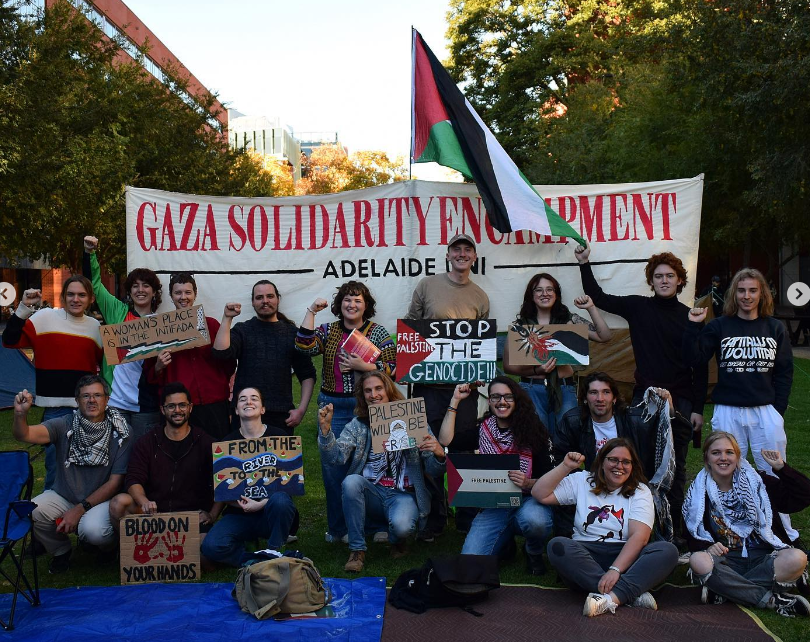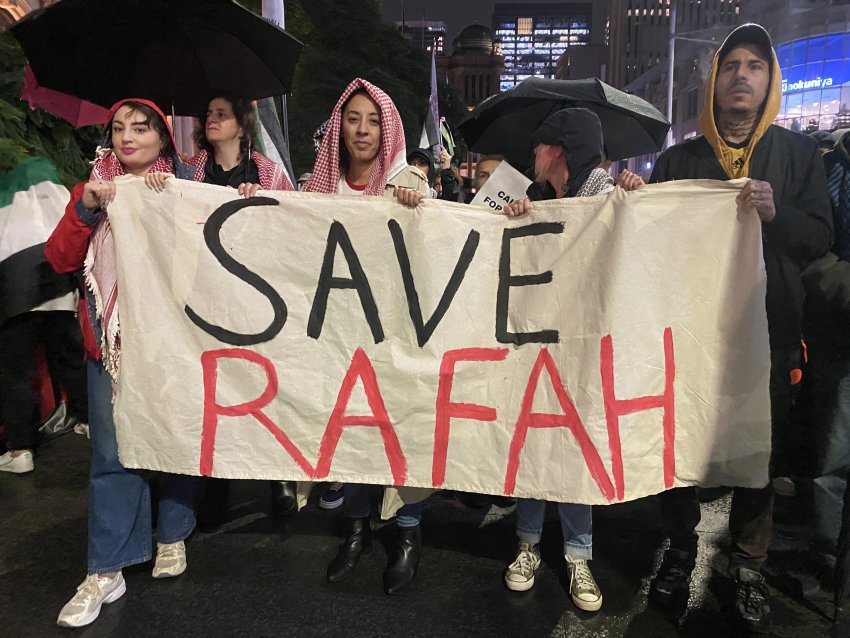
Reports that Israel had begun its long-threatened ground assault on Rafah drew big crowds to snap protests in Naarm/Melbourne and Gadigal/Sydney on May 7.
About 1.5 million people are sheltering in Rafah, displaced by Israel’s genocidal assault and destruction of Gaza. Israel has ordered more than 100,000 Palestinians in the eastern part of Rafah to evacuate. But they have nowhere to go.
The attacks on Rafah started after Hamas approved a proposal for a ceasefire, put by mediators in Qatar and Egypt, which included returning remaining hostages. Israel responded saying it would launch its ground invasion regardless.
Speakers at the snap protests demanded Labor cut all ties with apartheid Israel and put real pressure on Israeli Prime Minister Benjamin Netanyahu to stop the genocide.
melbourne_rafah_rally_01_jacob.jpg
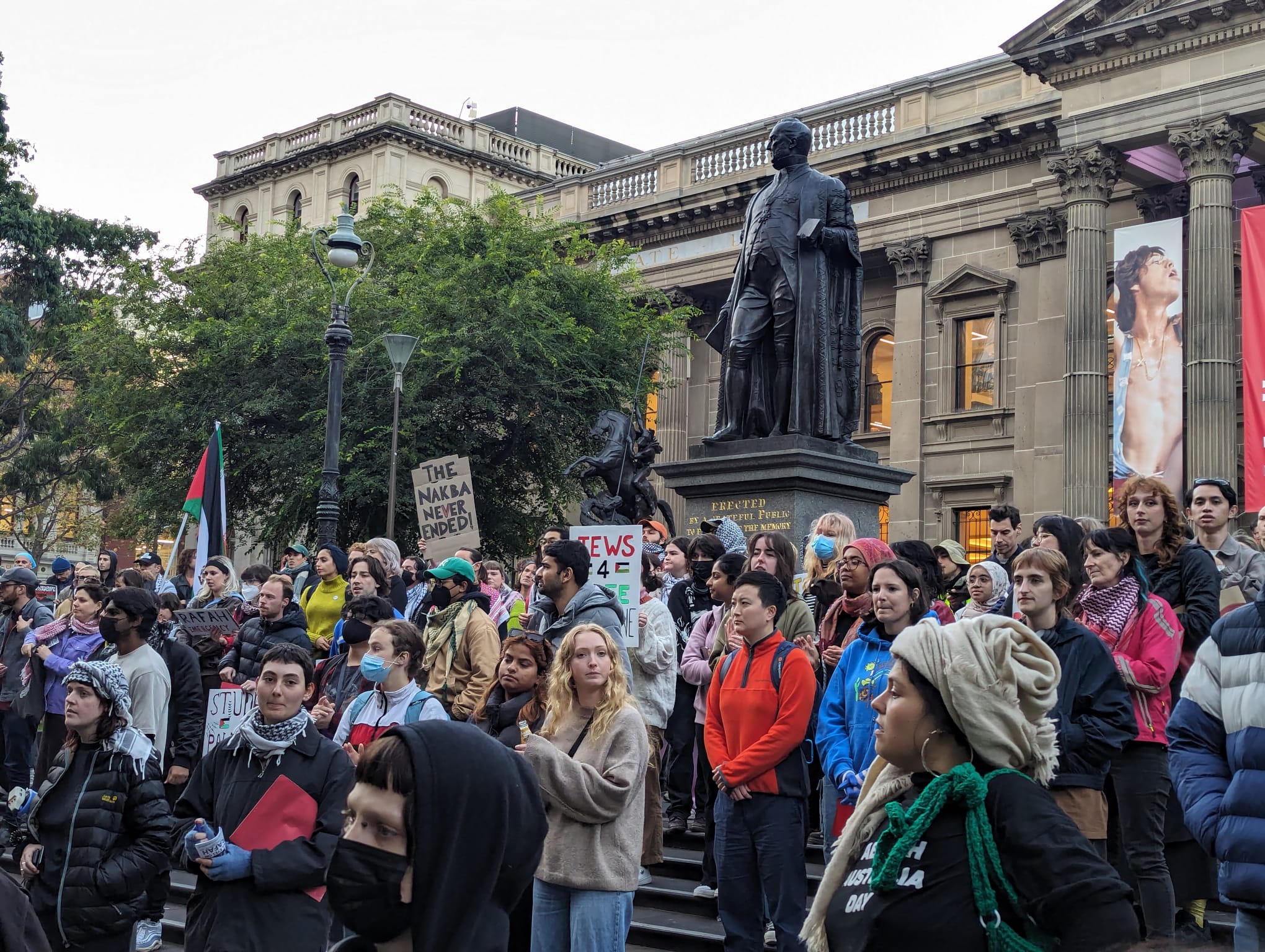
Commenting on Israel’s apparent rejection of the ceasefire deal, Amal Nasser, co-chair of the Gadigal rally, said: “This proves it was never about the hostages. It was always about using ethnic cleansing to clear Palestinians out of Gaza.”
Nasser said the federal government's calls on Israel not to invade Rafah are not enough. “The Israeli government will not listen to calls when the Western governments around the world have provided Israel with complete impunity for the past 76 years.
“Massacre after massacre after massacre has been conducted by the Israeli regime, they have been able to completely annihilate the Gaza Strip because of the impunity our government has given them…
“Since October, our government has sent more than $1.5 million in arms to Israel, to be used to conduct a genocide.”
She said Prime Minister Anthony Albanese and foreign minister Penny Wong must do more than “condemn” Israel’s invasion.
“We need sanctions on Israel, the expulsion of the Israeli ambassador, a two-way arms embargo, which includes cutting over $1 billion in contracts with Israeli arms dealers.”
queensland_labour_day_04_alex_b.jpg
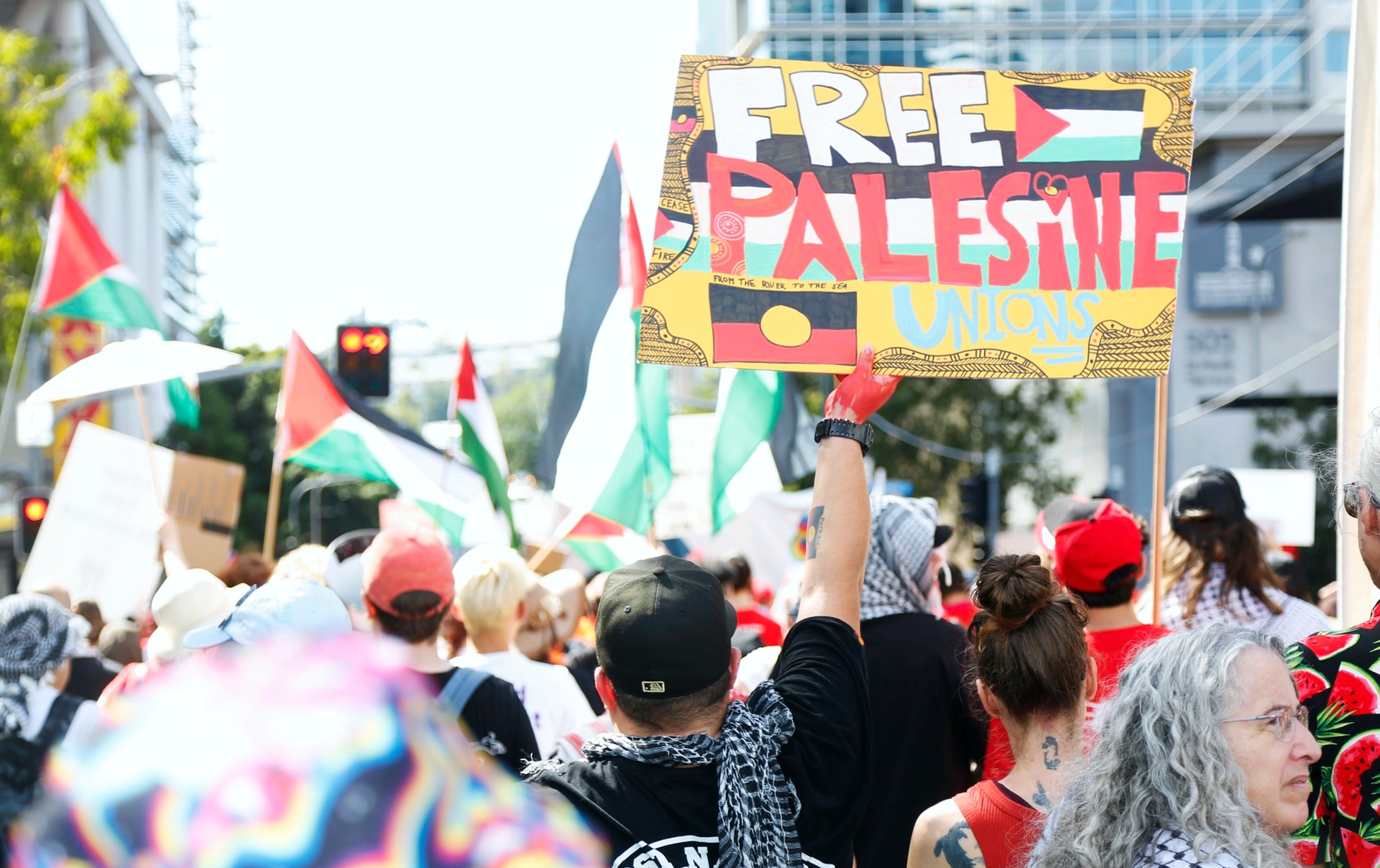
Weekend marches for Palestine on May 4–5 combined with May Day rallies in some cities, highlighting the importance of international solidarity between workers.
Jacob Andrewartha reported that thousands joined the May 5 rally in Naarm/Melbourne, which brought together union continents from the Construction, Forestry, Mining and Energy Union, Maritime Union of Australia (MUA), Australian Services Union, United Workers Union and others.
melbourne_may_day_01_jacob.jpg
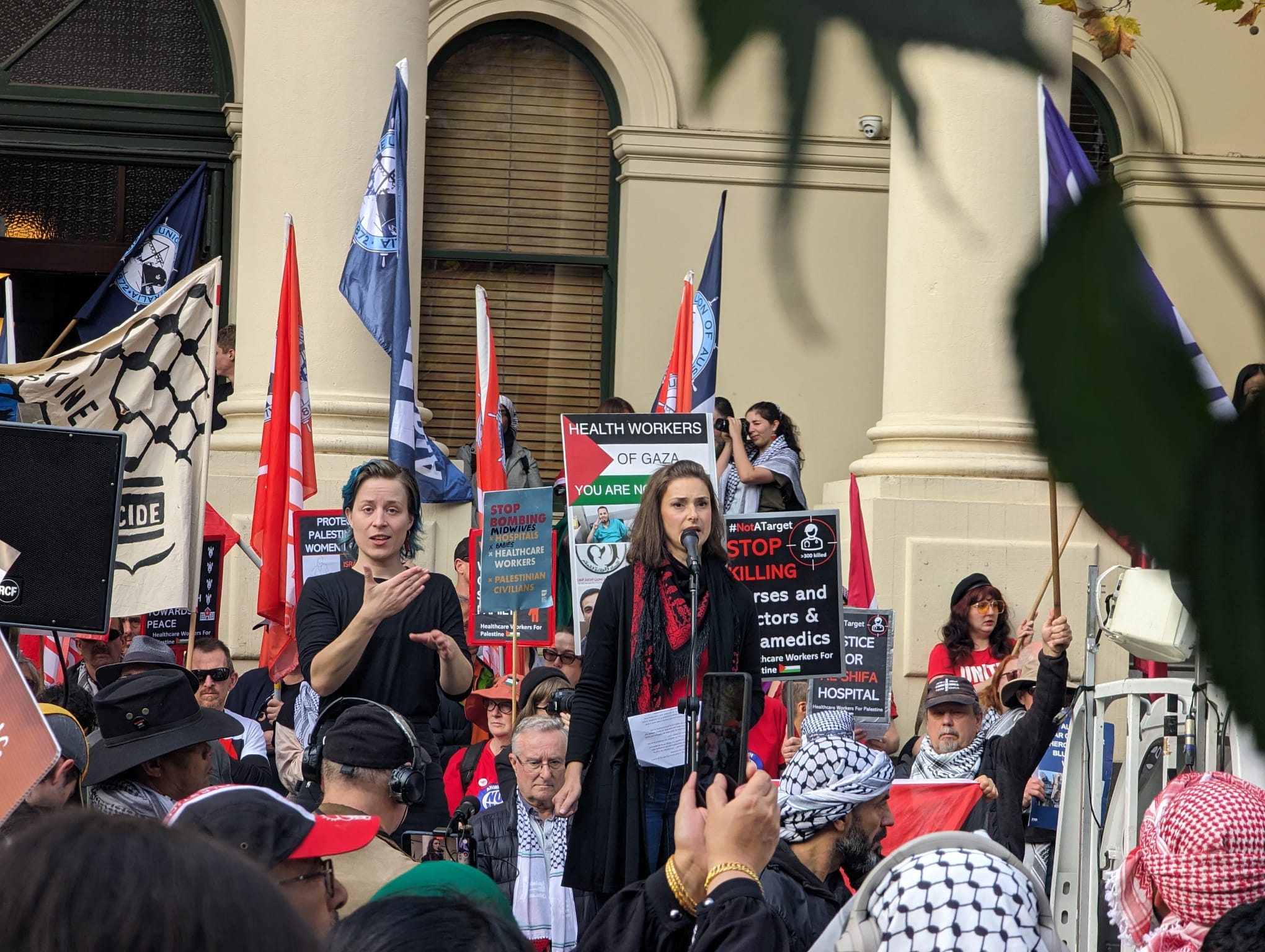
In Boorloo/Perth, about 300 people joined the combined Palestine bloc organised by various groups including Friends of Palestine WA, Unionists for Palestine and Students for Palestine at the annual May Day march, reported Alex Salmon.
perth_03_alex_salmon.jpg
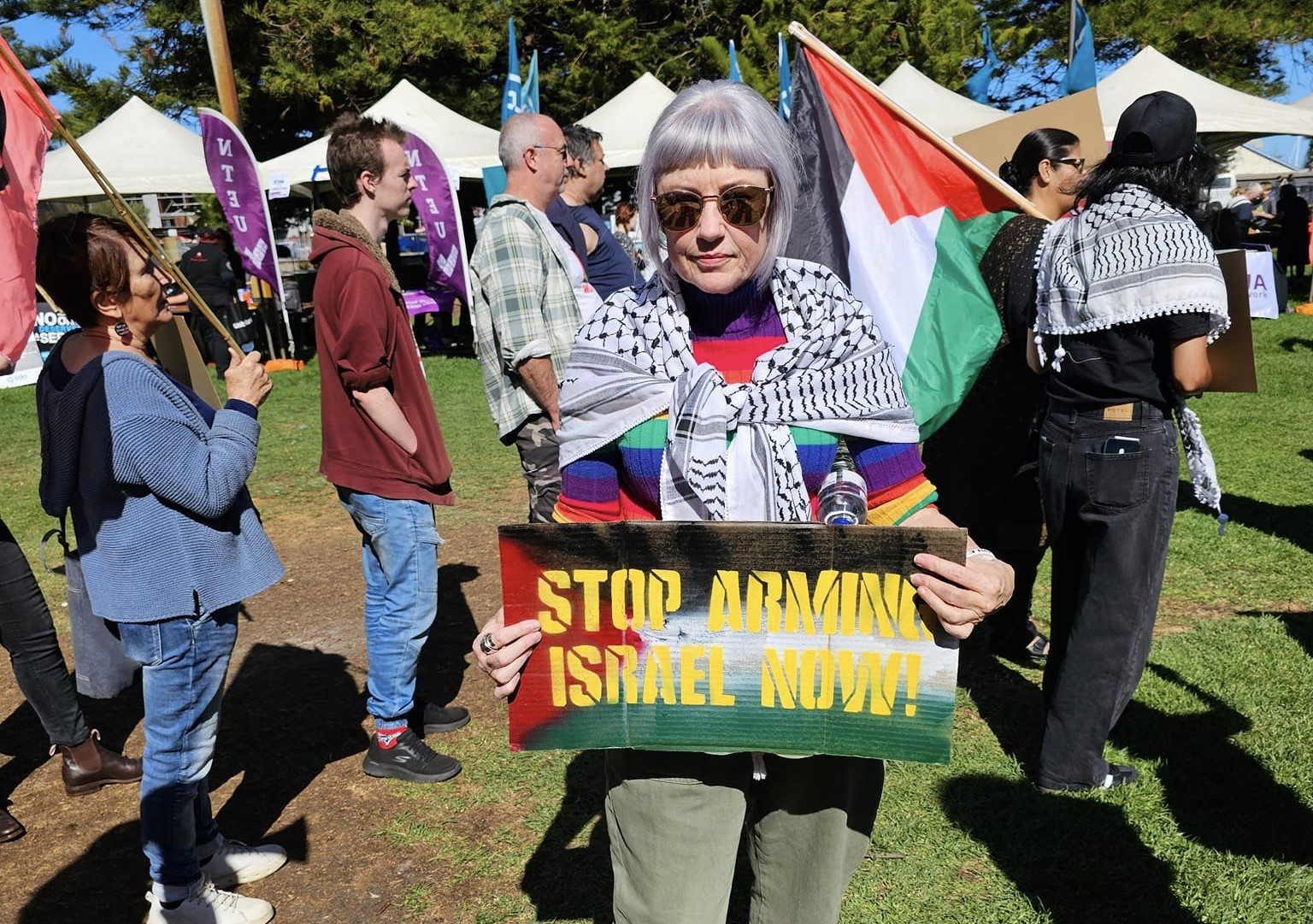
Friends of Palestine WA is planning its next rally on May 18, to mark the 76th anniversary of the first Nakba.
queensland_labour_day_01_alex_b.jpg
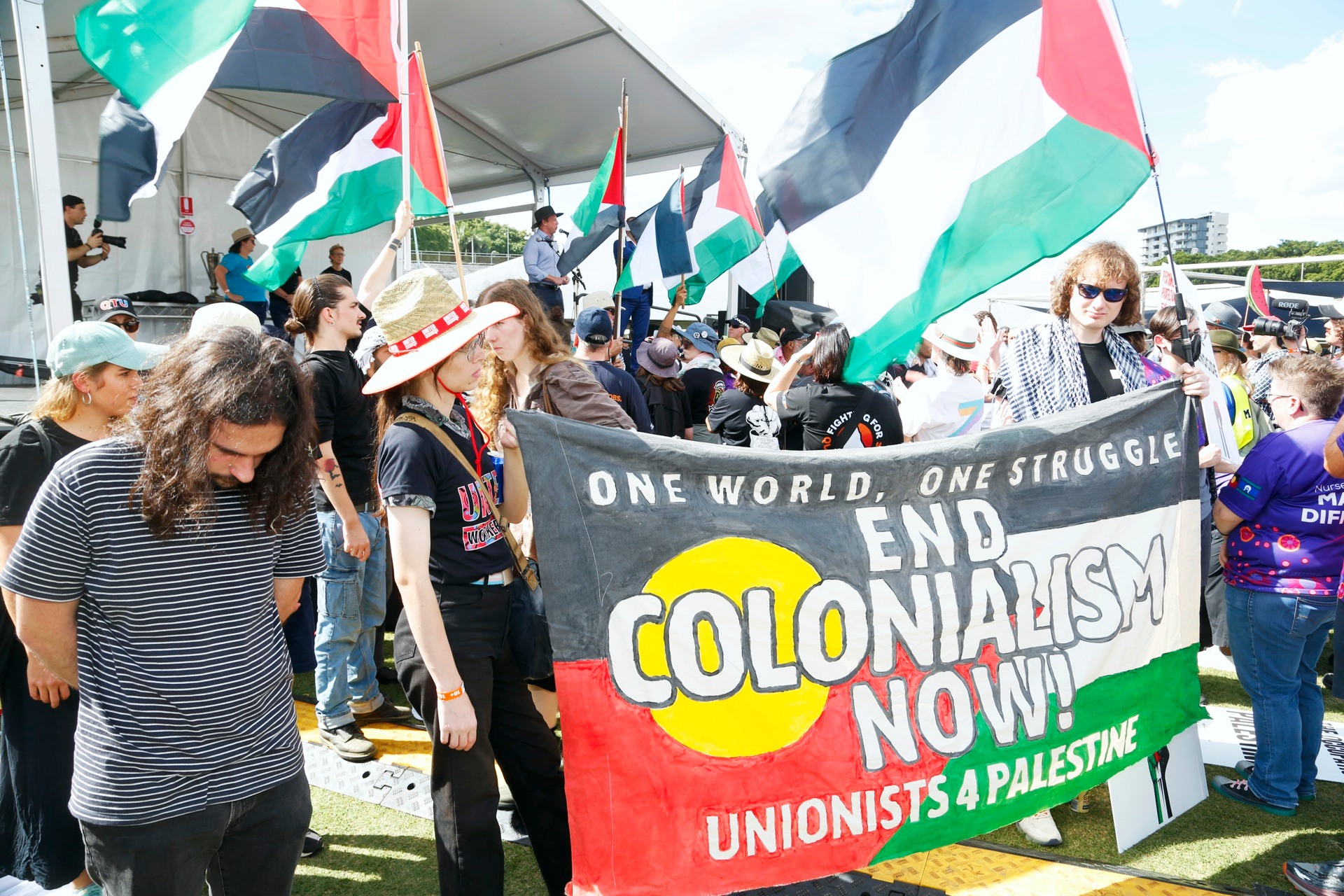
Protesters turned their backs on Premier Stephen Miles as he addressed the Magan-djin/Brisbane Labour Day march on May 6, reported Alex Bainbridge.
Solidarity with Palestine was a recurring theme at the march, with a vibrant contingent organised by Justice for Palestine Magan-djin and many unionists carrying pro-Palestine signs and symbols.
One person was arrested for shouting his opposition to Israel's genocide during Miles' speech.
Tens of thousands of workers participated in the event, for which there is a public holiday. A number of union campaigns were highlighted as well as calling for freedom for Julian Assange and supporting Queensland Labor's recent decriminalisation of sex work.
tasmania_rally_01_resistance.png
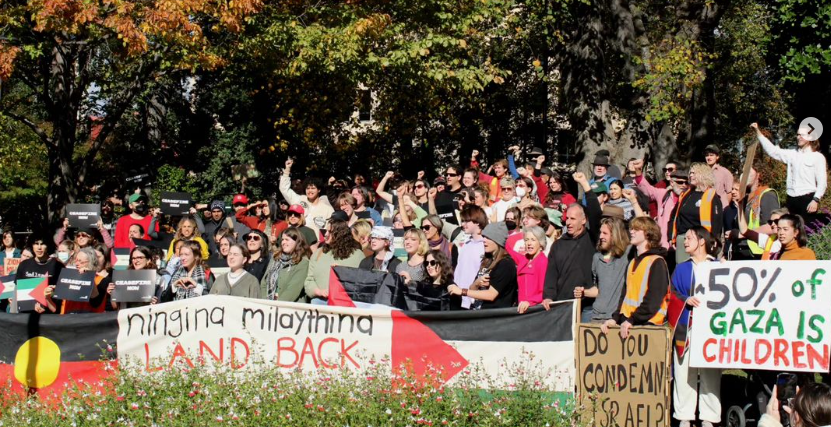
A strike for Palestine was held in nipaluna/Hobart on May 3, with students, workers and community members joining a rally in Franklin Square.
An open mica format allowed for many voices. Many speakers called on workers to play a role in the liberation of Palestine, and for First Nations justice and peace.
may_day_sydney_palestine_01_isaac.jpg
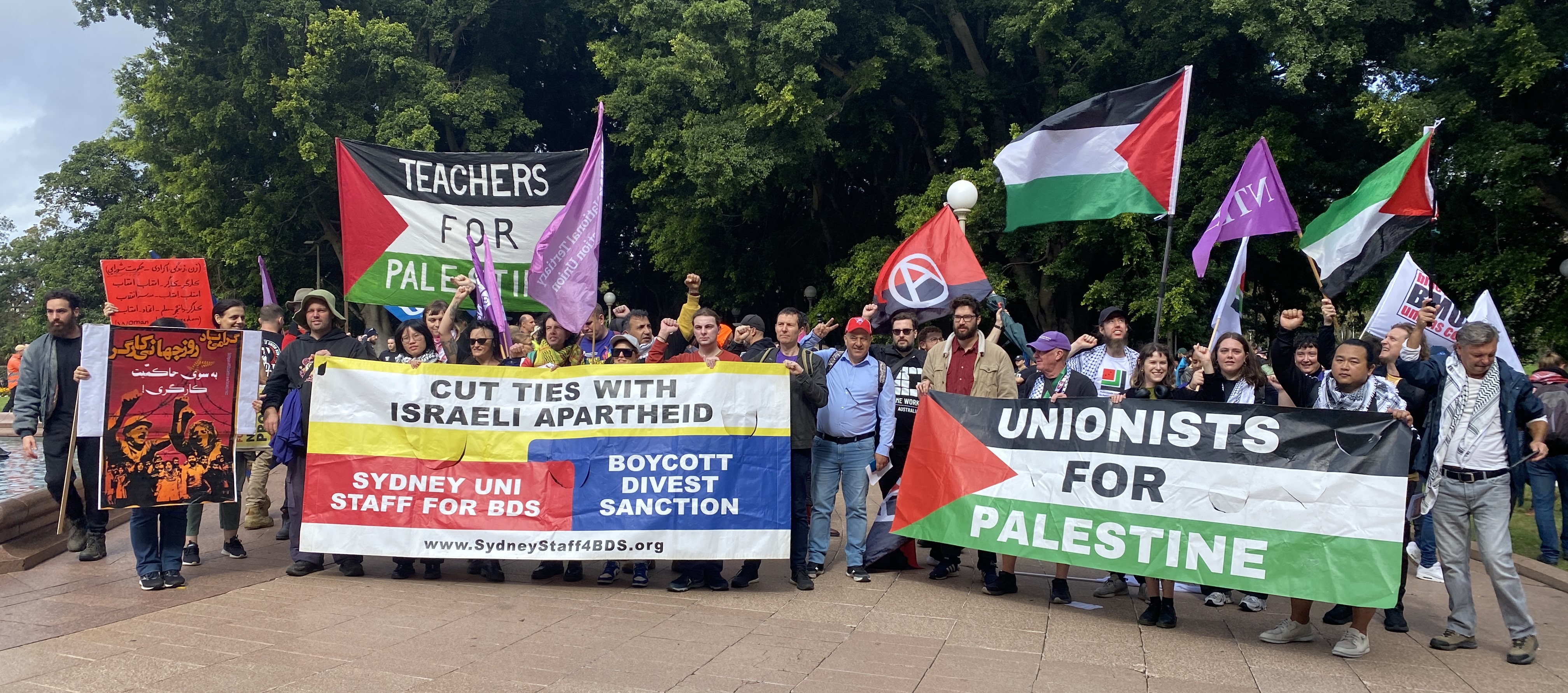
The May Day rally in Gadigal on May 1 also featured a vibrant Palestinian contingent, reported Jim McIlroy.
Paul Keating, MUA NSW state secretary, called on Premier Chris Minns to get scrap the repressive anti-protest laws and take a stand on Palestine. “Israel is an apartheid state … we demand a permanent ceasefire in Gaza and sanctions on Israel immediately.”
Palestinian speaker Jana Fayyad thanked unions for their support, but said it still not enough to stop a genocide.
“You hold the power and you can say no to apartheid Israel. You can say no to any kind of work that is complicit in the genocide and occupation of Palestinians. You have the power to stand up and take a stance against the genocidal state of Israel.”
In Magan-djin, a protest was organised against the promotion of Carolyn Weiniger — a Zionist, Israeli doctor who has supported Israel's bombing of hospitals and denial of medical aid to Gaza — by the Australia-New Zealand College of Anesthetists at their conference.
queensland_doctors_action_01_alex_b.jpg
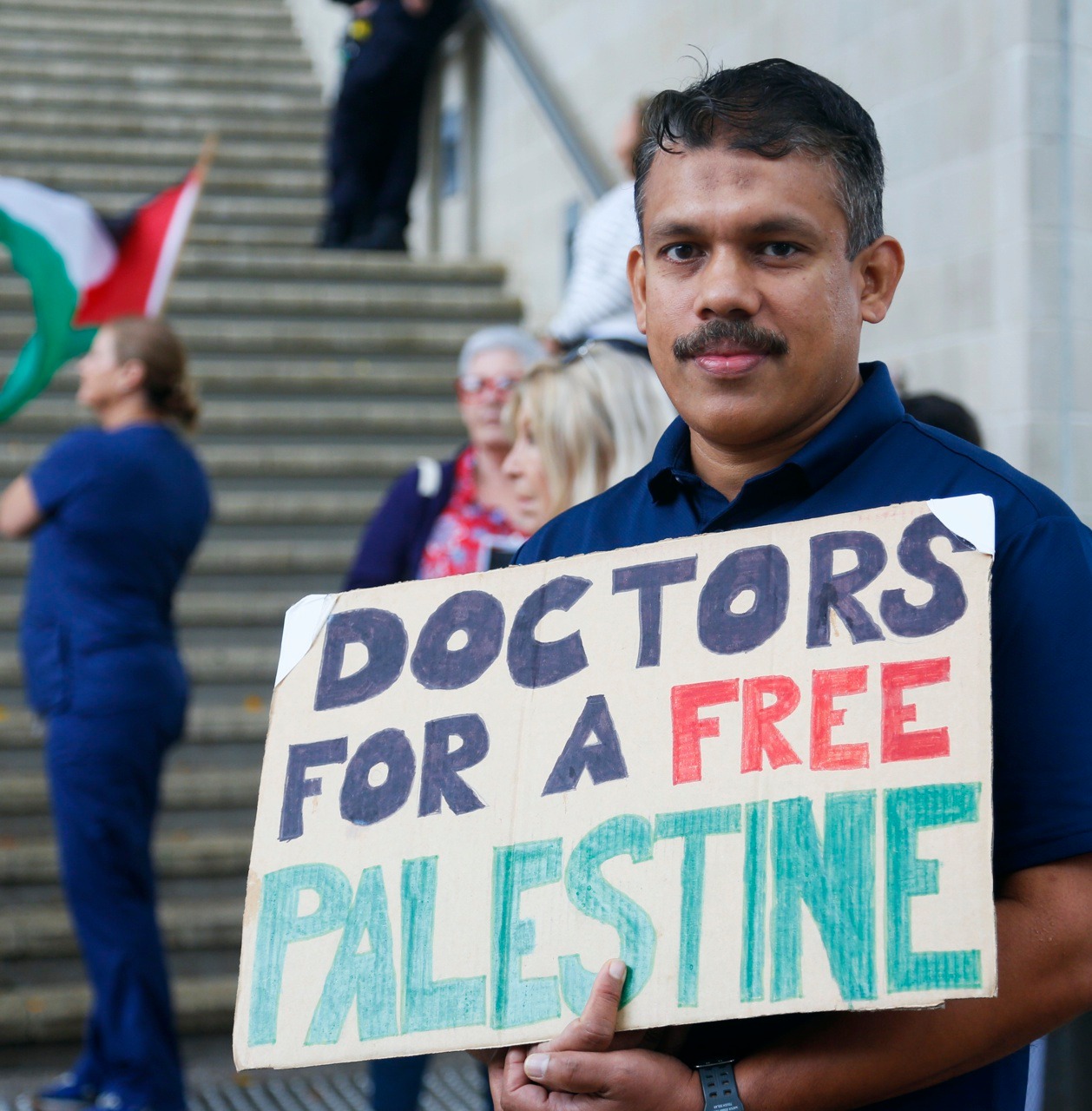
Alex Bainbridge reported that Noor Aljassim told the rally: “Innocent people are dying of preventable and curable conditions” in Gaza. She highlighted the mass graves found at hospitals in Gaza, which included the bodies of children, elderly people and hospital staff.
More than 450 healthcare workers have so far been killed by Israel.
Gaza solidarity encampments have been set up by students on universities across the country, including Deakin University, La Trobe University, Australian National University, University of Wollongong, University of Adelaide (UoA), Monash University (MU) and University of Tasmania.
uni_melb_01_jacob.jpg
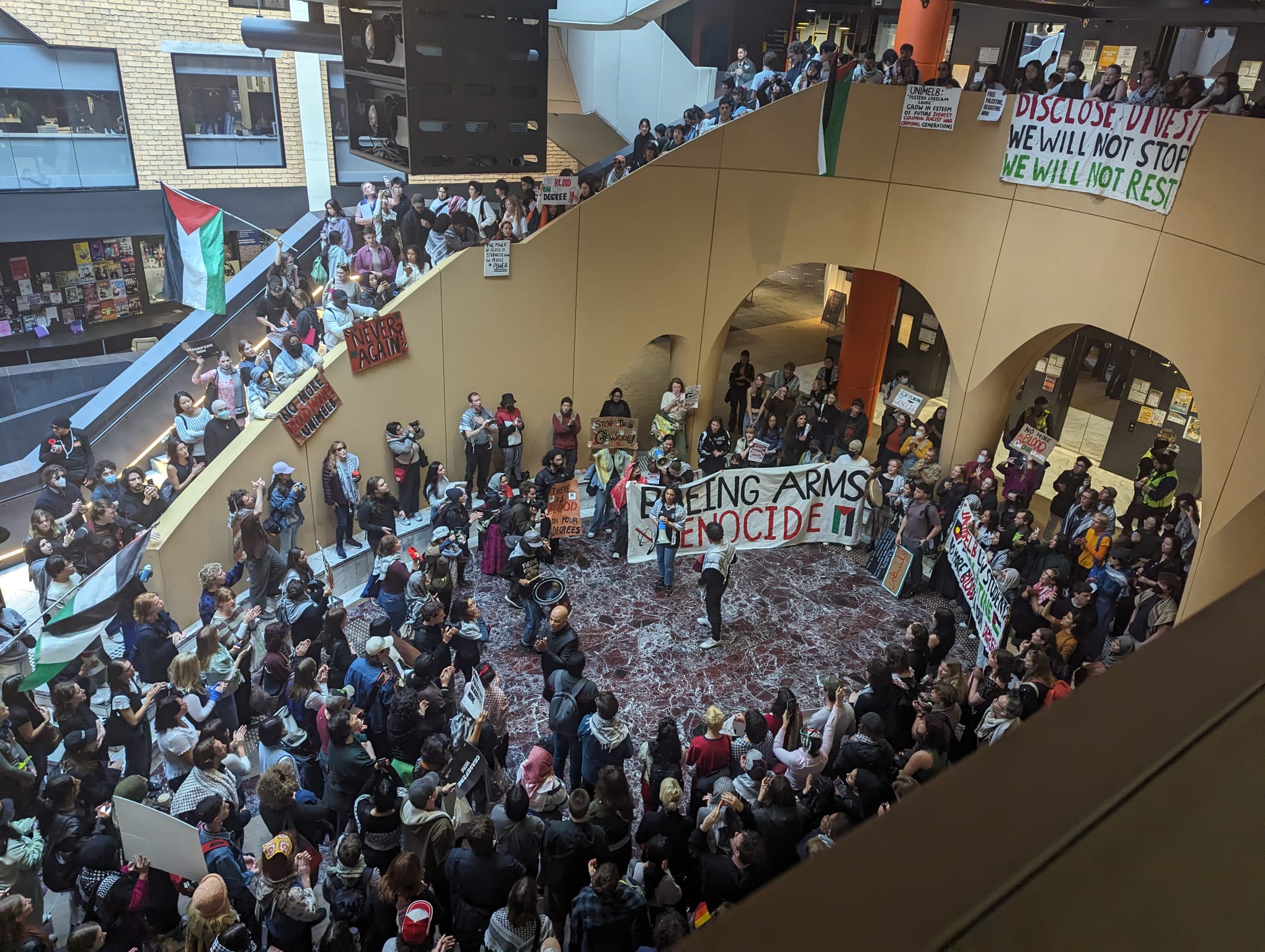
They joined students at the University of Sydney (USyd), University of Melbourne (UoM), Curtin University and University of Queensland to demand their universities disclose all funding agreements and divest from weapons companies and other companies which make the university complicit in Israel’s genocide in Gaza.
usyd_rally_03_zeb.jpg
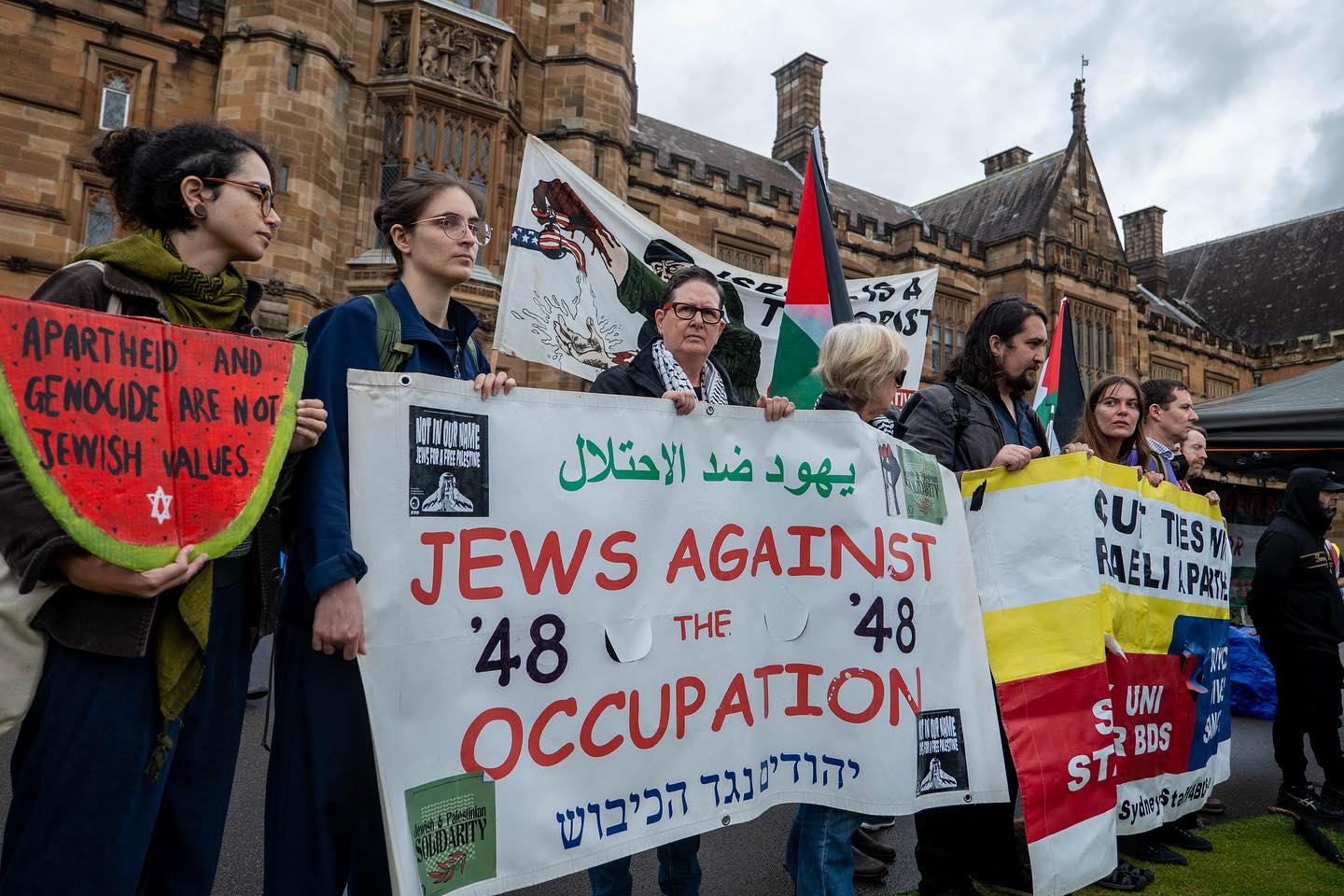
Hundreds gathered to support the encampment at USyd on May 3, in response to a Zionist counter-protest, reported Isaac Nellist.
The pro-Palestine rally was significantly bigger than the Zionist rally, which drew less than 100 people. The rally featured anti-Zionist Jewish groups the Tzedek Collective and Jews Against the Occupation 48’, who disputed claims that the encampments were “antisemitic”.
Peter Slezak, Associate Professor of Philosophy at the University of NSW, said this was a “historic moral moment”.
“It is like the cases in the past of South Africa and East Timor where the world is rising up against the crimes and atrocities which our governments and our universities are complicit in.
“It’s very impressive that the students are the ones standing up and speaking out when everybody else is remaining silent.
“For me it is a particularly poignant moment, my parents were survivors of the Holocaust, both my mother and grandmother survived Auschwitz, and they always asked ‘why did the world turn away? Why did nobody do anything?’
“We now know the answer to that, our leaders and the politicians and the universities are doing exactly that and after 6 months, it is to your credit that you are standing up and speaking out so loudly.
“I congratulate you all and I am proud to stand with you.”
uni_melb_03_jordan_ak.jpg
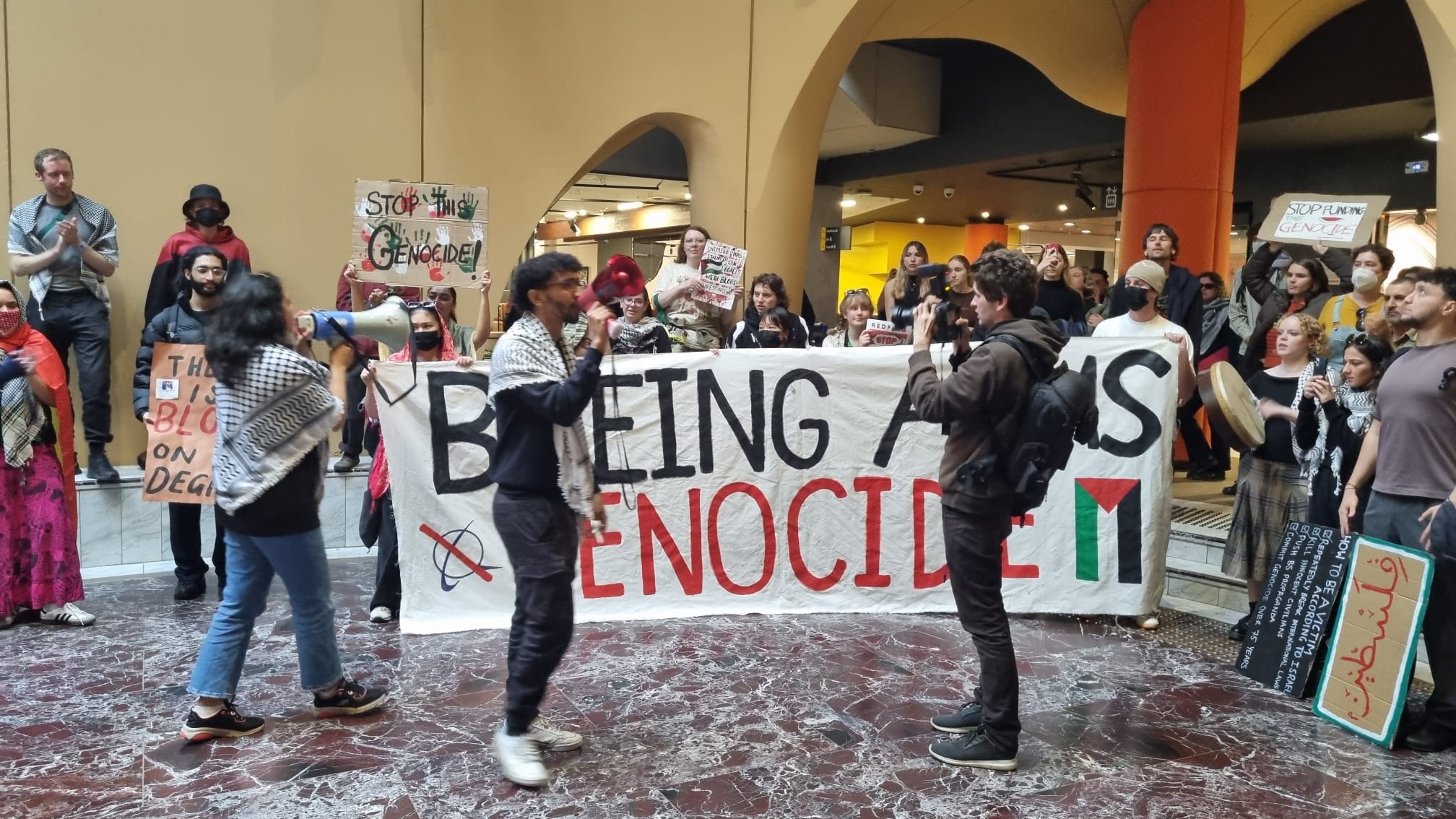
On the same day, at UoM, hundreds of students and workers occupied the Arts West building and chanted “Disclose, divest, we will not stop we will not rest” and “Uni Melb, you can’t hide, you’re supporting genocide”.
cairns_may_day_02_david_anthony.jpg
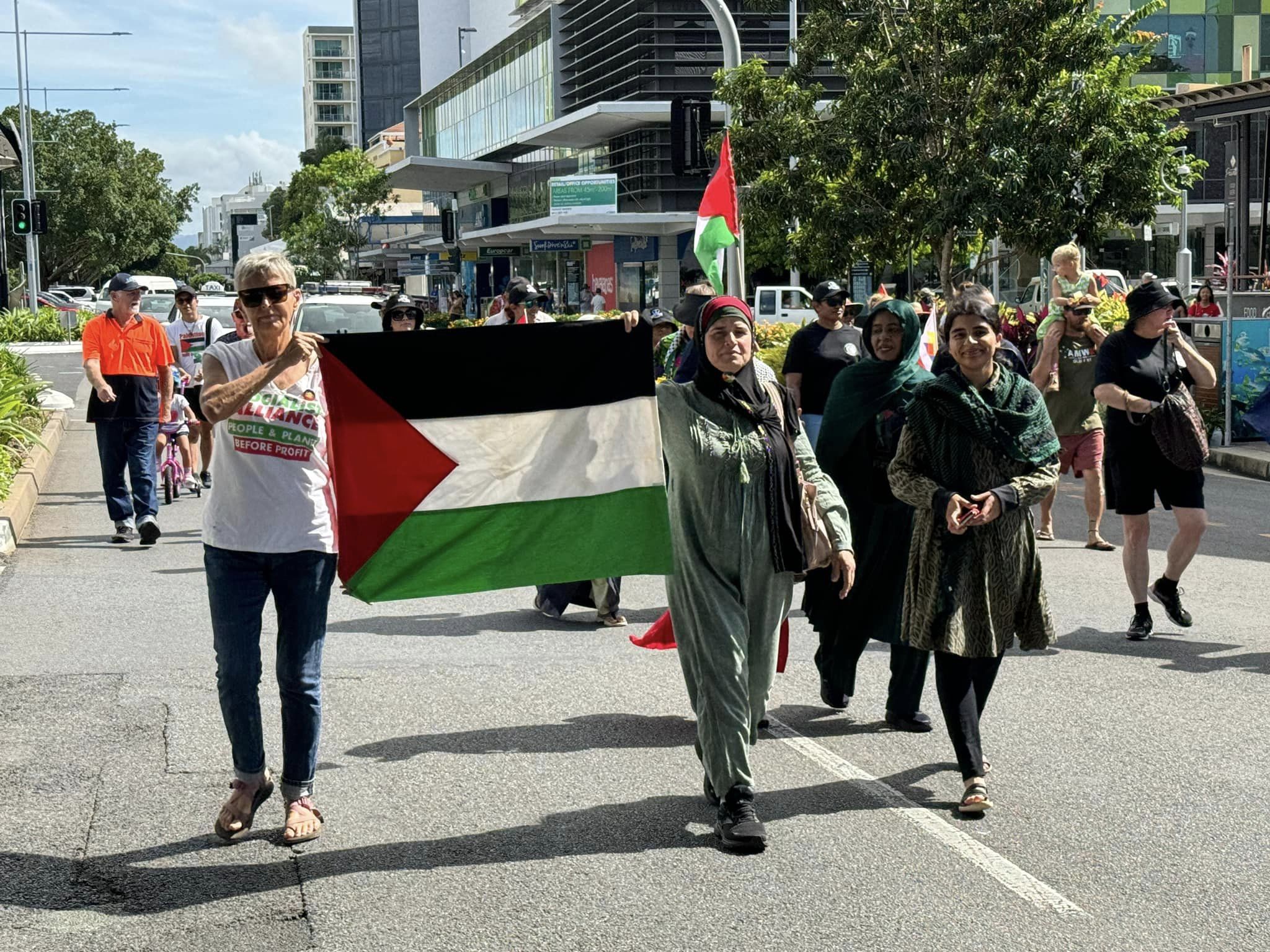
adelaide_uni_01_jordan_ellis.png
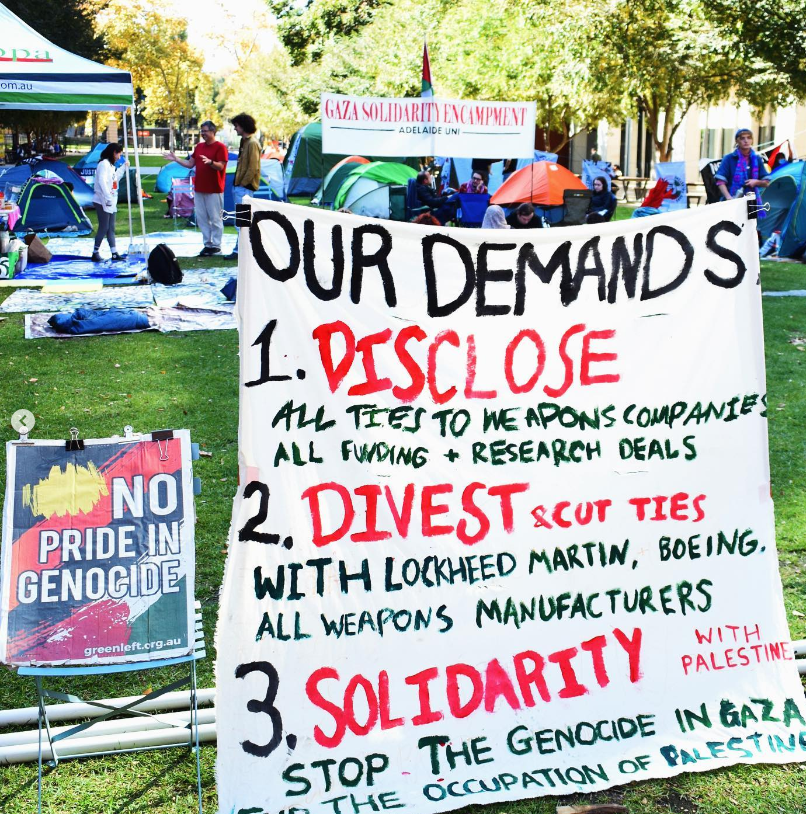
monash_01_jacob.jpg
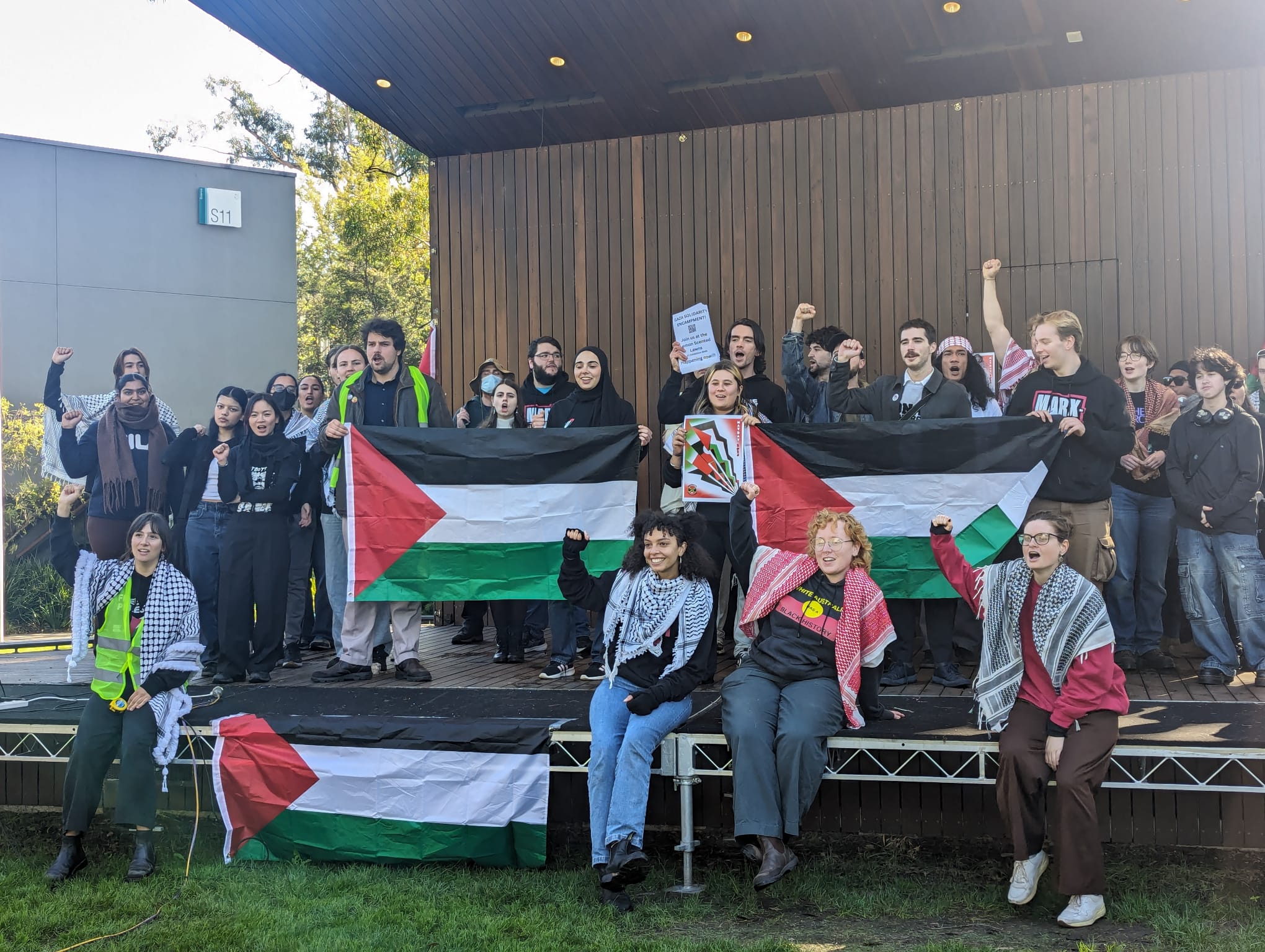
tasmania_uni_01_resistance.png
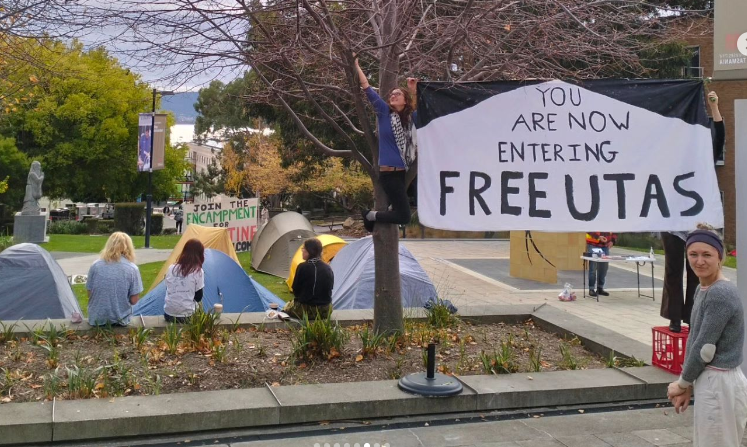
queensland_labour_day_06_alex_b.jpg
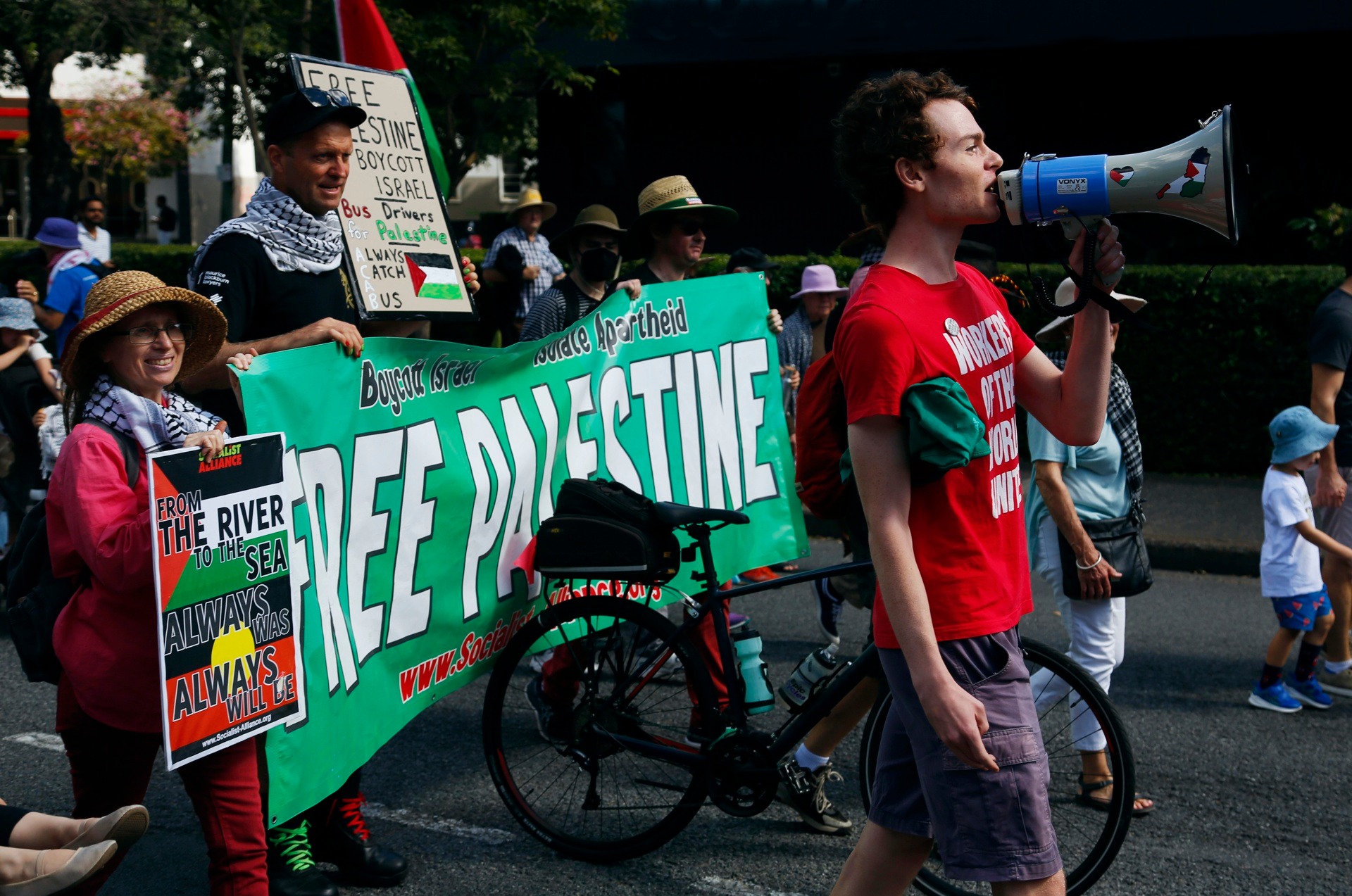
usyd_rally_02_zeb.jpg
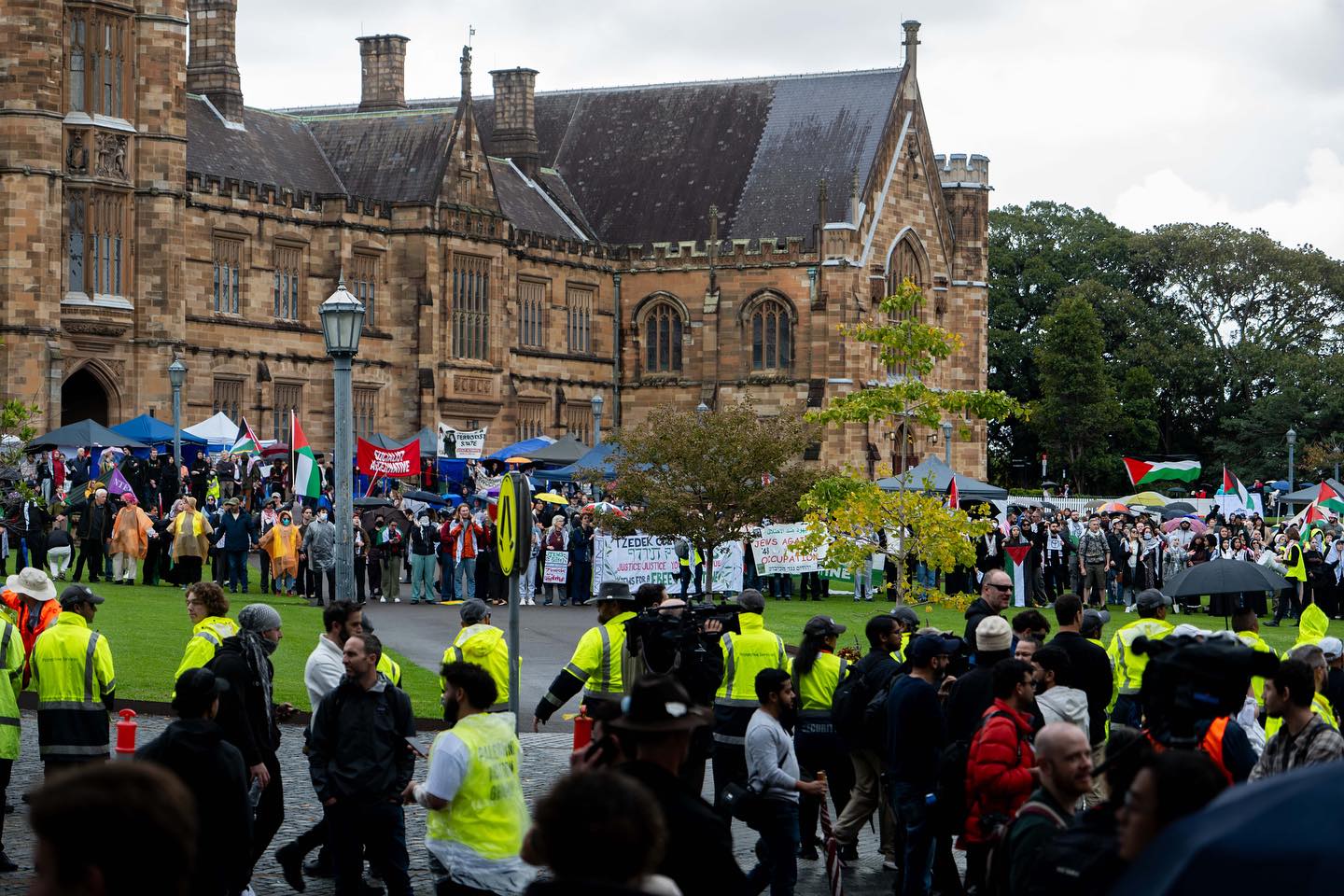
perth_01_alex_salmon.jpg
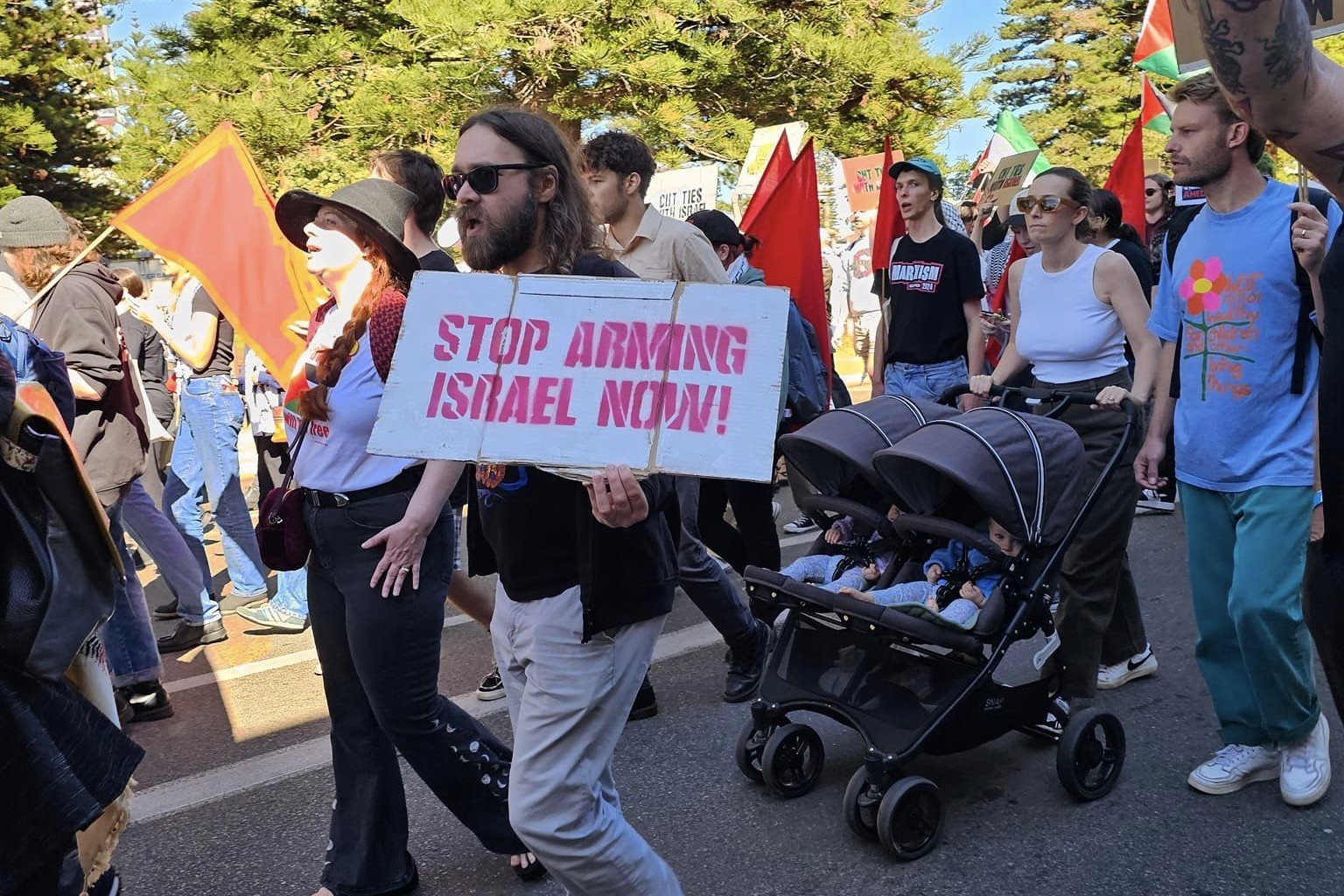
deakin_uni_01_jacob.jpg
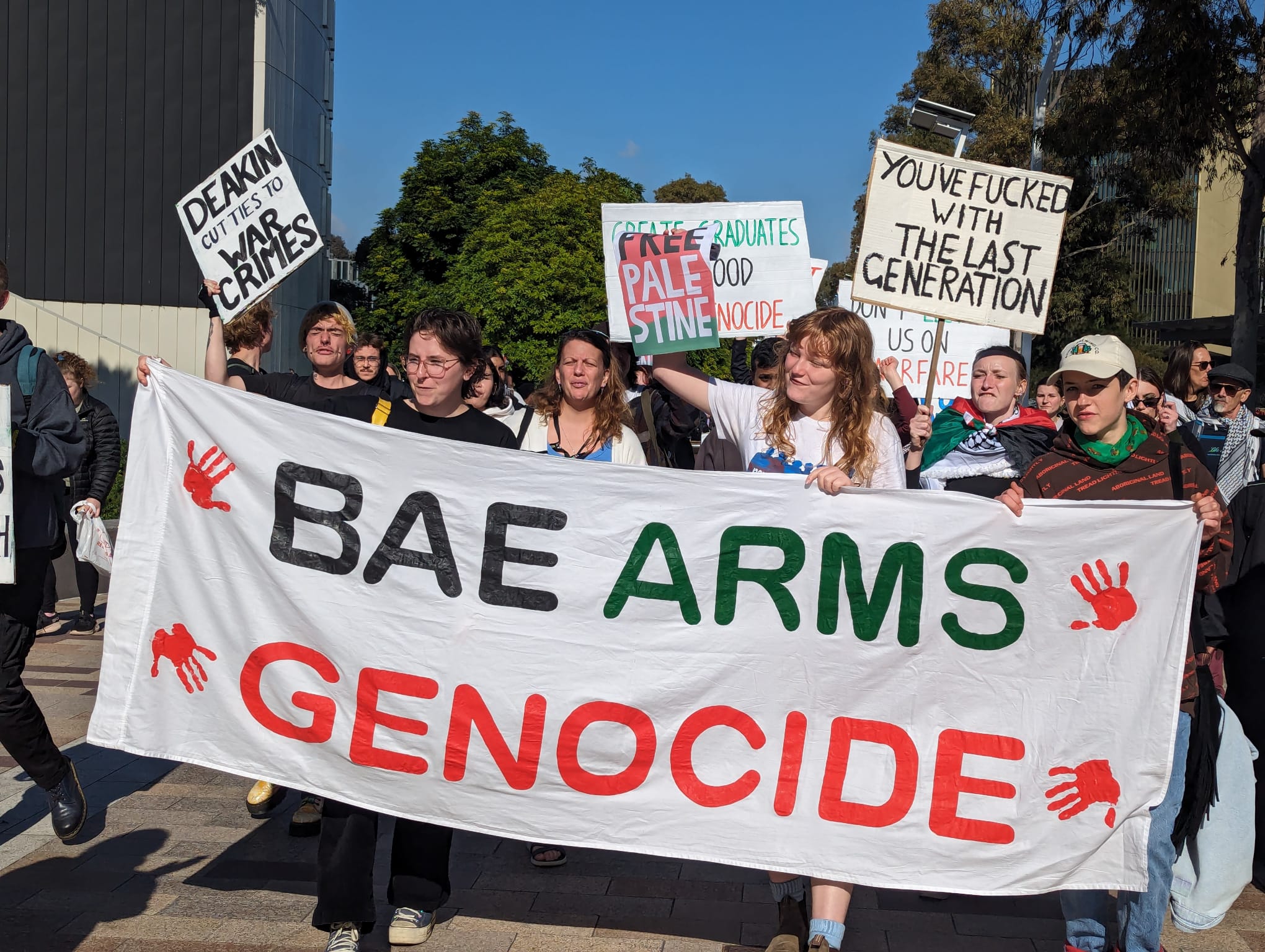
sydney_rafah_01_isaac.jpg
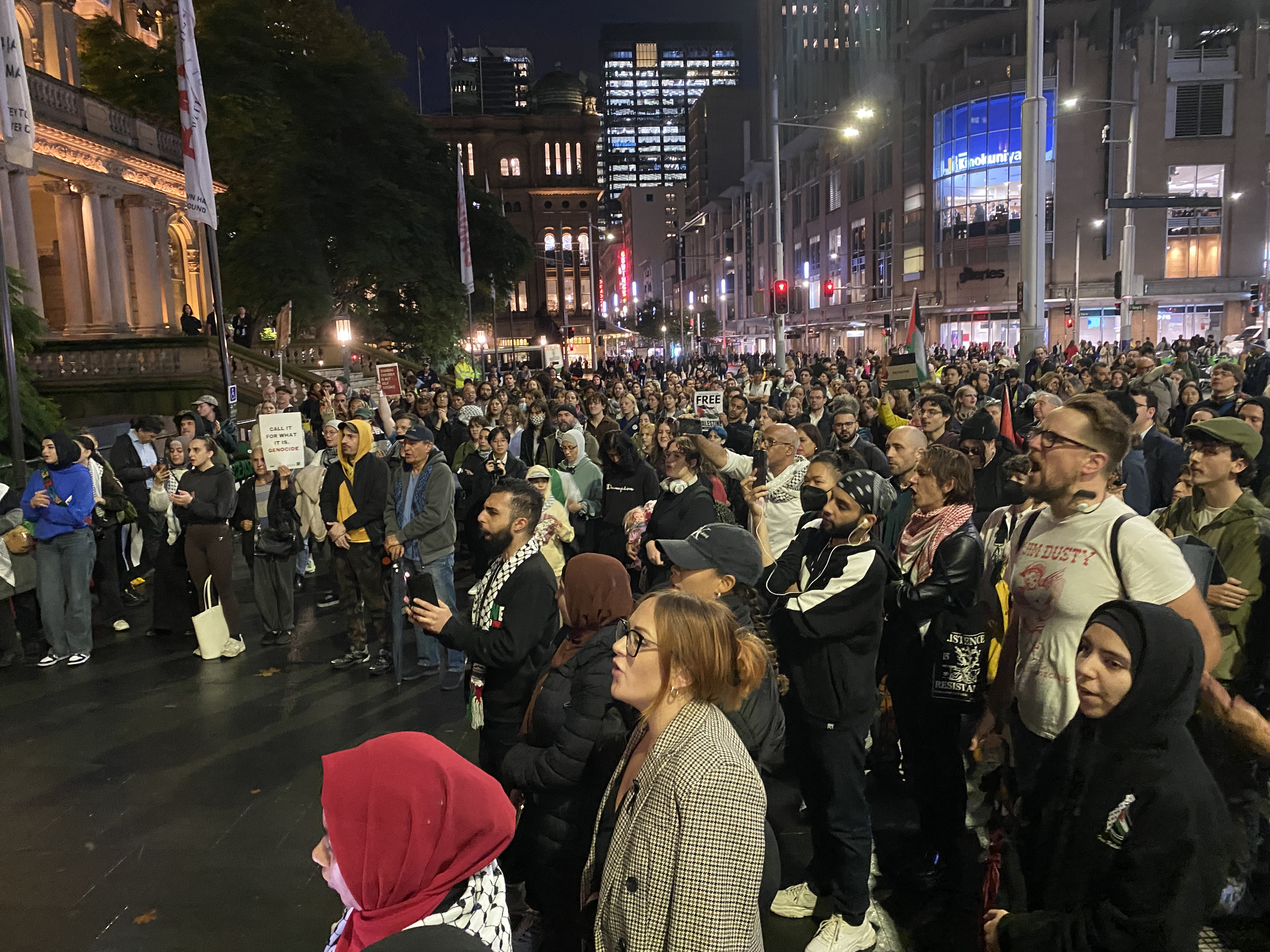
adelaide_uni_02_jordan_ellis.png
